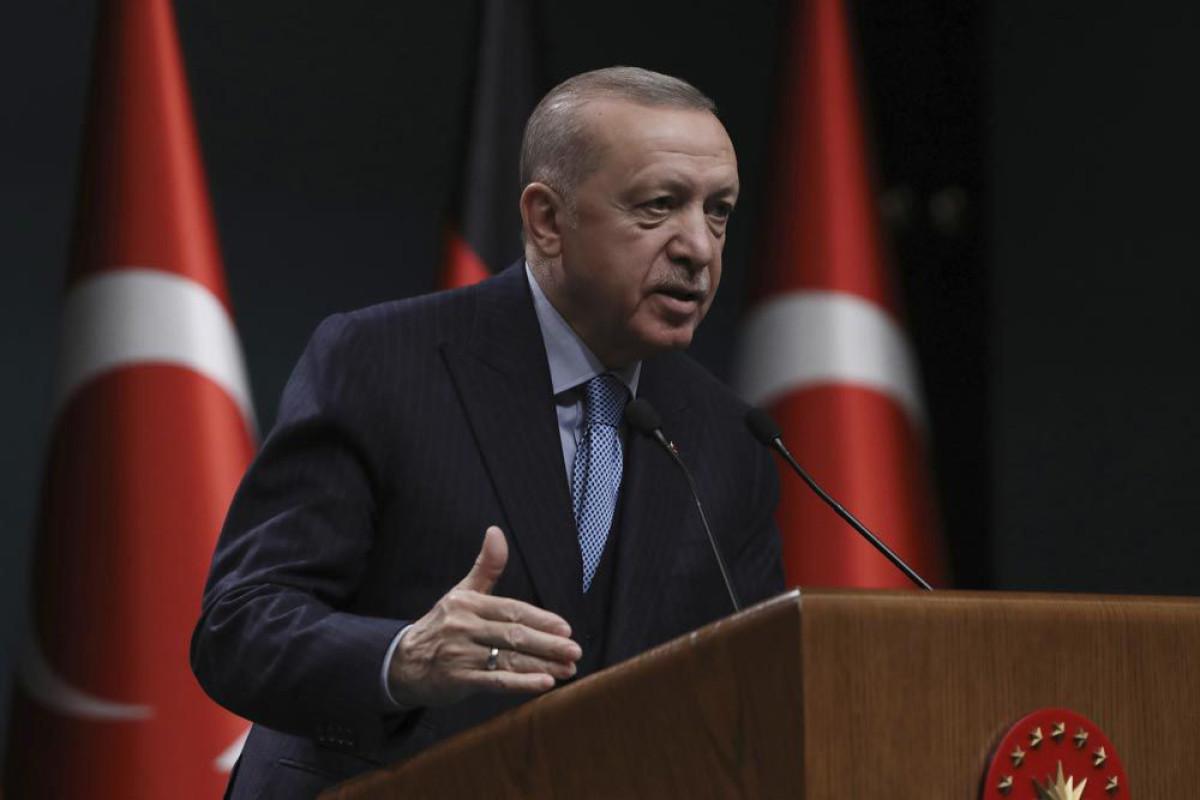May anti-Turkish demarches on Aegean coast lead to war? Geopolitical analysis by Caliber.Az
Differences between Türkiye and Greece over the demilitarisation of the islands in the eastern Aegean, proceeding from the developments, may greatly complicate the tense relations between the two countries.
According to Turkish sources, the Greek Armed Forces transported dozens of tanks and armoured personnel carriers to the Turkish border in June 2022. The Greek army units in the eastern Aegean are on high alert, while Greek artillery is deployed 7-8 kilometres to the west.
Ankara, which periodically makes warning messages, is greatly concerned about an increase of armaments by Greece near the borders with Türkiye.
According to the Keep Talking Greece news website, earlier this week, Turkish National Defence Minister Hulusi Akar brought the issue back to the attention of Athens, stating that Ankara would take pre-emptive action if the Greeks did not comply with the demand to demilitarise the Aegean islands.
In fact, the Turkish national minister of defence made it clear to the Greek side that the accumulation of weapons near Türkiye’s borders gives it the right to self-defence. Today, Ankara does not rule out that the five-fold increase in the Greek military budget is directly related to Türkiye. Several facts show that these fears are justified.

First, these are the obstacles that the Greek side puts up to prevent the sale of Western weapons and military equipment to Türkiye, including US F-16 fighter jets and German submarines.
Secondly, Greece plans to purchase US weapons, and, apparently, to use them against Turkish drones.
Athens will purchase three US MQ-9 unmanned aerial vehicles (UAVs) and AAV-7 amphibious assault vehicles worth $703 million, which will patrol territories in the Aegean Sea and the eastern Mediterranean.
Thirdly, Greece is holding talks on the purchase of missile systems with Israel. According to the Greek NewSport.gr news agency, Greece plans to sign an agreement on Spike missiles produced by the Israeli Rafael Advanced Defence Systems Ltd soon.
Moreover, it has already signed several major arms deals with Israel to buy drones, with France to buy Rafael warplanes and with the US to upgrade its F-16 fighter jets to the latest Viper configuration. The Turkish side is also greatly concerned because all missile systems will be deployed in ground units stationed in Greece’s Evros northeastern region bordering Türkiye and in the Aegean Islands.
Greece continues its deliberate militarisation of the archipelago in the Aegean Sea, thereby greatly straining relations with Türkiye. The Greek side’s illogical actions are forcing Türkiye to respond, but so far Ankara has just made statements about the possible consequences of the ill-conceived policy of Athens.
In particular, Turkish President Recep Tayyip Erdogan has already stated that he will not give up his rights in the Aegean Sea and will use his powers within the corresponding international agreements. While watching the "Efes-2022" military exercises on the coast of the Aegean Sea in June 2022, the Turkish leader unequivocally stated that it was necessary to stop providing the islands, having non-military status, with weapons and to comply with international agreements. Türkiye's principled position is that it stands for a fair distribution of resources in the Aegean Sea, and Ankara is unlikely to refuse its legitimate interests in the region under any circumstances.

On the other hand, Türkiye shows by its actions that it is determined to continue making efforts to establish lasting peace and stability in the region and to ensure the rights of the Turkish population of the islands. The latter, by the way, is very important. According to the Turkish leadership’s opinion, Greece deliberately violates the provisions of the Treaty of Lausanne, in particular, regarding the rights of the Turkish national minority. The Turkish leader also voiced the problem in connection with the 99th anniversary of the signing of this agreement, which will expire in 2023.
The Treaty of Lausanne of 1923, one of the key final documents of the Lausanne Conference of 1922-1923, was signed on July 24, 1923, by the UK, France, Italy, Japan, Romania, the Kingdom of Serbs, Croats, and Slovenes on the one hand, and by Türkiye – on the other hand.
It replaced the 1920 Treaty of Sèvres. According to the Treaty of Lausanne of 1923 and the Paris Peace Treaty of 1947, the territories of the islands of Lemnos, Samothrace, and several others in the eastern part of the Aegean Sea were transferred to Greece on the condition of disarmament for the "preservation of peace".
That is, according to this document, any possibility of sending any troops to these territories, except for the Greek forces of law and order, was excluded. The violation of the demilitarised status, according to the treaties, entitles Türkiye to raise the issue of sovereignty over up to eighteen eastern islands of the Aegean Sea.
In this regard, the Turkish president proposed to revise this document back in 2017. During a visit to Greece in 2017, he accused Athens of infringing on the rights of the Muslim minority living in Western Thrace province and on the islands of the Aegean Sea, justifying this by the low standard of living of the islanders. However, the claims of the Turkish side were ignored by the Greek authorities.
There are a lot of contentious issues in bilateral relations between Greece and Türkiye, and the most acute problem is related to the violation of the status of the demilitarised islands by Greece, which, according to the Turkish government’s opinion, will inevitably lead to the beginning of negotiations on the sovereignty of these territories.
Such a statement was made by Turkish Foreign Minister Mevlut Cavusoglu in June 2022, after Athens rejected Ankara's arguments about the relationship of Greek sovereignty over the islands in the Aegean Sea with obligations to demilitarise them. Most of the islands of the Aegean archipelago are part of Greece, which intends to expand the territorial waters adjacent to them.
Therefore, Türkiye opposes this as it has sovereignty over two islands in the northern part of the sea.
Moreover, Türkiye has not signed the UN Convention on the Law of the Sea, according to which countries can expand their territorial waters up to 12 nautical miles. In this case, it will be difficult for the sides to find a compromise.
The tension in relations between the two countries strengthens the US military factor in Greece, which is regarded in Ankara as anti-Turkish actions.
It is obvious that Türkiye’s military and political factor in regional and world politics, especially now, amid a global redistribution of the world order, is becoming significant and the West is concerned about this.
Therefore, there is no doubt that Washington will continue encouraging the steps and actions of Türkiye’s opponents, contributing to the incitement of the conflict between Athens and Ankara.
While comparing the political weight, military, and economic capabilities of Türkiye and Greece, one can conclude that the Athenian leadership should think about the consequences of the impending crisis in the region.








